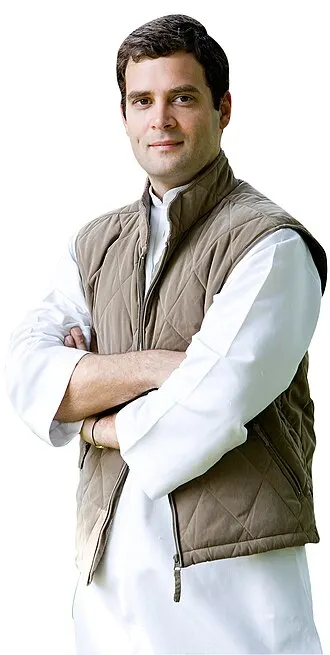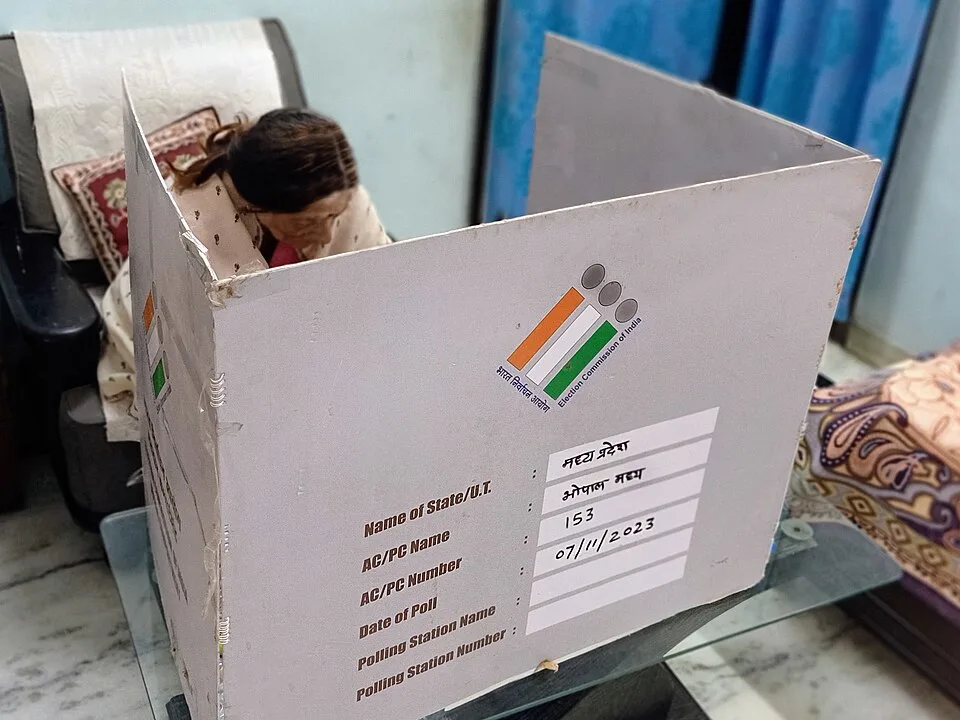Will Rahul Gandhi’s Poll Fraud Claims Push the Election Commission to Act…..
Congress leader Rahul Gandhi has brought to light major irregularities in the voter list of an assembly segment under the Bangalore Central Lok Sabha constituency. For the past six months, his party’s team has been examining records and identifying multiple layers of discrepancies in the Mahadevapura segment. According to the Congress, this forms part of its broader effort to question whether the Election Commission is functioning with complete fairness.
Interestingly, Mahadevapura was the lone assembly segment where the BJP managed to secure a decisive lead in the 2024 Lok Sabha elections, despite trailing behind the Congress in the other seven segments of the Bangalore Central constituency.

Bangalore Central Poll Fraud
The unusually high vote count for the BJP in Mahadevapura gave the party an edge of nearly 33,000 votes over the Congress in the overall tally for Bangalore Central.
Since the electoral rolls examined by the Congress are sourced directly from the Election Commission’s official records, the data Rahul Gandhi presented on Thursday (August 7) stands out as the party’s strongest evidence yet of alleged poll malpractice. These irregularities, according to the Congress, point to deeper flaws in the electoral process — issues that only the Election Commission can address with full credibility.
Rather than pausing to examine the concerns highlighted by Rahul Gandhi, the Election Commission responded by daring him to make his allegations under oath. This approach is unlikely to calm the rising concerns about the integrity of India’s electoral process, and it does little to enhance the EC’s reputation as an independent body.
By refusing to take the criticism constructively, the Commission may have actually strengthened Gandhi’s claims. He pointed to problems such as repeated names on the voter list, false residential details, the misuse of Form 6 to add ineligible voters, and suspicious entries in Mahadevapura’s rolls that appeared fabricated. Gandhi accused the EC of engaging in “vote chori” — or vote theft — and likened the institution to an umpire siding with one team, the BJP. He further alleged that the poll body was operating under the ruling party’s influence, casting doubt on its neutrality.
Election poll fraud
Some of the details Rahul Gandhi revealed were striking. According to him, after six months of physically checking printed copies of Mahadevapura’s electoral rolls, the Congress team identified 11,965 duplicate entries, 40,009 voters registered with false addresses, 10,452 people listed as bulk voters at single locations, 4,132 with invalid photographs, and 33,692 names allegedly added through the misuse of Form 6 — the document used for enrolling new voters.
Gandhi also pointed out that certain individuals appeared in multiple polling booths within the same constituency. In three separate examples, he claimed that 80 voters were registered at a single address and that 46 names were linked to a one-room dwelling. Photos of these addresses, which the Congress says it personally verified, reportedly showed that none of the listed voters actually lived there.
Perhaps the most telling example he presented was of a Bengaluru brewery called “153 Biere Club,” which, on paper, was home to 68 registered voters — yet, according to the Congress, none of those individuals could be located at the site.
These claims are significant and ought to worry anyone who values the integrity of India’s electoral process. Rahul Gandhi has argued that the errors in the voter lists were a decisive factor in his party’s loss in the Bangalore Central constituency. While the Congress secured victories in every other assembly segment of the seat, the BJP’s overwhelming lead of more than 1.1 lakh votes in Mahadevapura tilted the final outcome in its favour.
Vote Chori poll fraud
Rahul Gandhi has labelled the events in Mahadevapura as a “model” case of what he calls “vote chori,” adding that he suspects similar practices could be happening in other parts of the country. He said the Congress’s concerns about election fairness grew sharper after losing the assembly polls in Haryana and Maharashtra — two states where it had performed strongly in the Lok Sabha elections and where internal party surveys had predicted wins.
Gandhi stressed that “the ball is in the EC’s court,” meaning it is now up to the Election Commission to seriously consider these allegations, investigate them, and give clear answers instead of trading barbs with opposition figures.
These latest charges come on the heels of Gandhi’s earlier claims about irregularities in some Maharashtra constituencies, which he says the Election Commission has yet to respond to.
Responding to a question, Rahul Gandhi said the central debate around elections in India is no longer about whether to use electronic voting machines or paper ballots. In his view, the real concern is whether the Election Commission can operate independently. If the EC works without bias, he argued, the process will automatically be free and fair.
The Congress has levelled similar charges in the past, but this may be the first time its most recognisable leader has so directly challenged the country’s top election authority, casting doubt on its autonomy in such unambiguous terms.
As a constitutional institution, the Election Commission cannot simply watch events unfold from the sidelines. It has a duty to confront these allegations head-on and resolve them before they grow into something larger and more damaging.
Doing so, however, will require a change in approach. In recent months, the EC has responded sharply to opposition criticism, with the Chief Election Commissioner even repeating the BJP’s claim that a “false narrative” was being created to discredit the Commission.
Election Commission Rule ( Poll Fraud )
A few months back, the Election Commission amended its rules to stop the sharing of CCTV footage from polling stations. This move came after the Congress requested the footage for its verification exercise, with the EC claiming that releasing such material could spark needless political disputes.
More recently, the Commission displayed a similar combative stance toward the judiciary. It reacted with clear displeasure to the Supreme Court’s suggestion that, during the “special intensive revision” of electoral rolls in Bihar, voters could be verified using standard ID documents such as Aadhaar cards, voter photo IDs, or ration cards.
The EC must recognise that it cannot remain detached from today’s political environment, where almost every institution faces scrutiny over its independence and is perceived to be under political pressure. The only credible way for the Commission to clear its name is to address each accusation with evidence, transparency, and composure.
For a start, it could follow Gandhi’s Thursday request to make the digital copies of electoral rolls publicly available for verification, and also provide CCTV footage from polling stations when opposition parties ask for it.
Without such steps, Gandhi’s allegations are likely to continue resonating with citizens who value the democratic process.

